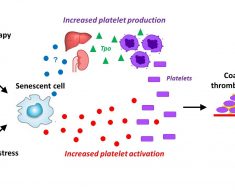There are various treatments that are used to help patients with Alport syndrome to manage their condition. Most of them are used to help reduce and slow down symptoms. The benefits of the treatments are mostly realized when they are implemented early in the patient’s diagnosis with the syndrome.
Dealing with blood pressure
Various medicines that impact the development of kidney symptoms for Alport syndrome act on the renin-angiotensin-aldosterone system in the body, which regulates blood pressure in the body. A class of medicines called angiotensin-converting enzyme (ACE) inhibitors are sometimes used when proteinuria is detected in patients. With the condition, blood pressure can build up in the blood vessels of patients. These particular medicines reduce the pressure by opening up the blood vessels.
Another class of medicine that helps with treatment is angiotensin receptor blockers (ARBs). These are also used to deal with high blood pressure by relaxing the patient’s blood vessels. They do this by blocking the action of angiotensin II. ARBs can sometimes have fewer side effects in patients than ACE inhibitors. Both classes of medicines help to delay the progression to End Stage Renal Disease (ESRD) in patients who have Alport syndrome.
Monitoring protein levels
Doctors can start monitoring possible proteinuria symptoms (abnormal levels of protein in the urine) in children as young as one year of age, who are at risk from the syndrome. They can carry out tests as regularly as once a year in infants who might be prone to reaching ESRD before they reach the age of 30.
Dealing with water retention
If a patient is retaining extra fluid, their doctor may prescribe diuretics to help the kidneys release the extra water in their system as urine. The medical team should also be careful to make sure that too much salt is not excreted.
Keeping cholesterol in check
High cholesterol is also a danger to the patient with Alport syndrome. Statins may also be helpful to the patient in controlling the level of low-density lipo-proteins (LDL) in the body. A high level can be dangerous for the body.
Diet and Lifestyle
Diet can have an impact on how quickly a patient’s health progresses to ESRD. Therefore, there are changes that the patient can implement with advice from a medical expert. The patient should try to reduce the amount of salt, fluids and protein in their food choices while still maintaining a healthy diet.
A low salt diet is advised because it helps to lower blood pressure in the patient and limits further damage to the kidneys. It also helps to reduce the amount of swelling in the limbs. Patients are advised to avoid processed food with a high sodium content and to also avoid adding unnecessary salt to their food.
Similarly, the patient should also be mindful of their potassium intake which can also damage the kidneys if consumed at too high an amount. A little amount of potassium it does, however, have the benefit of helping the muscles to continue to function effectively.
Phosphorous can also accumulate in the blood when the kidneys are not functioning properly and so patients are advised to eat less amounts of foods rich in phosphorous.
Protein is essential to the body, but too much can be dangerous for patients who have Alport syndrome, as the kidneys have to make more effort to process it in the body. Too much meat, fish or eggs can cause problems in digestion.
Patients are also advised to watch their consumption of fats and carbohydrates so that they are not gaining weight and putting the body under further strain. Fruits and vegetables are considered a good addition for the diet for the people with Alport syndrome. This can be supported by vitamins if necessary.
Patients with Alpot Syndome can also benefit from keeping in good shape through exercise and by not smoking.
References
- Pediatric Nephrology on Clinical practice recommendations for the treatment of Alport syndrome: a statement of the Alport Syndrome Research Collaborative: http://link.springer.com/article/10.1007%2Fs00467-012-2138-4
- NHS Choices on blood pressure: http://www.nhs.uk/Conditions/Blood-pressure-(high)/Pages/Treatment.aspx
- Journal for Nephrology on Renal protection with angiotensin receptor blockers: where do we stand: http://www.ncbi.nlm.nih.gov/pubmed/21404225
- Mayo Clinic on angiotensin II receptor blockers: http://www.mayoclinic.org/diseases-conditions/high-blood-pressure/in-depth/angiotensin-ii-receptor-blockers/art-20045009
- Nephcure Kidney International on Alport syndrome: http://nephcure.org/livingwithkidneydisease/understanding-glomerular-disease/other-glomerular-diseases/alport-syndrome/
Further Reading
- All Alport Syndrome Content
- What is Alport Syndrome?
- Alport Syndrome Signs and Symptoms
- How is Alport Syndrome Diagnosed?
- Alport Syndrome Genetics and Inheritance
Last Updated: Feb 26, 2019

Written by
Deborah Fields
Deborah holds a B.Sc. degree in Chemistry from the University of Birmingham and a Postgraduate Diploma in Journalism qualification from Cardiff University. She enjoys writing about the latest innovations. Previously she has worked as an editor of scientific patent information, an education journalist and in communications for innovative healthcare, pharmaceutical and technology organisations. She also loves books and has run a book group for several years. Her enjoyment of fiction extends to writing her own stories for pleasure.
Source: Read Full Article





